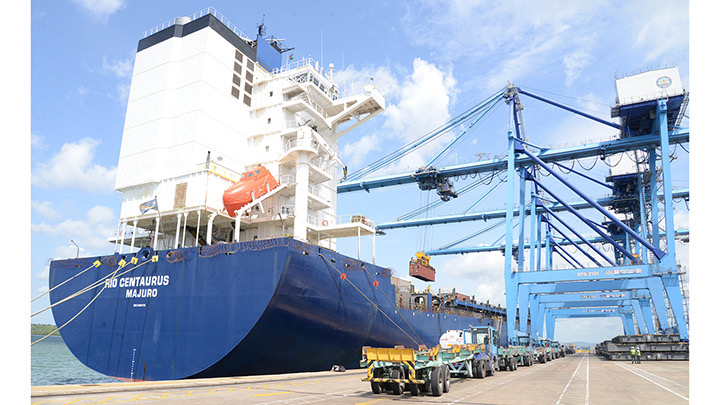In an effort to address the issue of price undercutting and enhance earnings within the cargo handling industry, the Kenya International Freight and Warehousing Association (KIFWA) has introduced minimum service fees set to take effect from December 1, 2023.
This new pricing structure, intended to counter inflationary pressures, signifies a significant shift in the sector, as cargo exporters and importers will now face higher service charges compared to current rates.
Minimum pricing, often employed to bolster the incomes of producers and service providers, is a double-edged sword, resulting in higher costs for product or service consumers.
KIFWA says the move aims to rectify an ongoing problem of exploitation, as some unscrupulous traders took advantage of clearing agents and charged minimal fees, sometimes as low as Sh3,000, for clearing cargo worth millions of shillings.
According to KIFWA's National Chairman, Roy Mwanthi, this practice will cease starting December 1 this year.
Read More
"We have not had minimum charges set for all our services we offer and this has brought in exploitation as some traders misused clearing agents and charged them as low as Sh3,000 to clear their cargo worth millions of shillings but this will end starting December 1 this year," Mwanthi stated.
The revised minimum fees cover various services offered by the association, affecting the cost of obtaining Import Declaration Forms, among others.
Specifically, for goods handled by air, sea, or land, traders will now be required to pay a minimum of Sh5,000 for either 20 or 40-foot containers.
Clearing a 20-foot container will cost a minimum of Sh15,000, while a 40-foot container will incur a minimum charge of Sh25,000 or 1.5 per cent of the total cost, insurance, and freight (CIF).
For local dealers involved in the export of goods, clearing and forwarding agents will introduce fees of $100 (Sh14,987.99) for 20-feet containers and $150 (Sh22,481.99) for 40-feet containers.
Meanwhile, transit charges will be $100 (Sh14,987.99) for 20-foot containers and $200 (Sh29,975.39) for 40-foot containers.
Importing vehicles will also see revised charges: Sh15,000 for units with engine capacities up to 2000 cc, Sh20,000 for those with engine capacities between 2001 and 3000 cc, and Sh30,000 for vehicles with engine capacities above 3001 cc, as well as buses, trucks, lorries, and other special vehicles.
KIFWA has further extended the implementation of minimum charges to cover other services, including transhipment and bond extension charges.
These measures come in response to ongoing unfair business practices marked by severe and unjustifiable price undercutting within the industry.
According to Leonard Njiru, Chairman of the Mombasa branch of KIFWA, the influx of unqualified intermediaries and importers pushing for reduced prices has created a situation where legitimate agents often receive minimal compensation for their services.
“Influx of quacks in the industry who act as middlemen in the industry with the sole aim of making money without incurring costs like office rent, licences, etc hence paying peanuts to agents while taking lion’s share," Njiru stated.
"Some importers are taking advantage by pushing for price cuts under the pretence that another agent is offering cheaper rates.”
This shift to minimum charges marks an important moment in the industry, as traders will no longer engage in price negotiations with service providers.
Instead, they will adhere to a standardized fee structure for various services, including the importation of goods and motor vehicles.
With the introduction of these minimum service fees, KIFWA seeks to restore fairness and transparency within the cargo handling sector, ultimately benefiting both industry professionals and consumers alike.
As the changes take effect on December 1, 2023, the Kenyan cargo industry is poised for a transformation that aims to balance the interests of all stakeholders involved.







-1757663582.jpeg)
